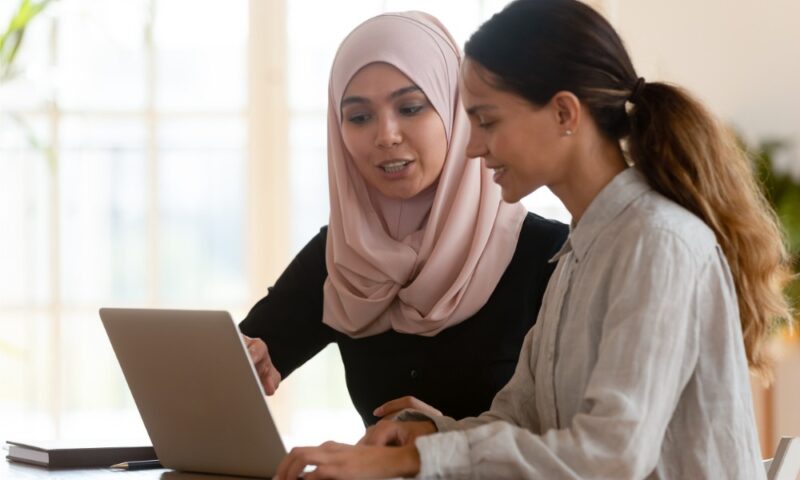
Why Mentors Need Training Too
Mentorship programs have become a staple for many associations. But expertise alone doesn’t guarantee a well-rounded mentor. That’s why the American Chemical Society offers a mentor training program.
Based on their experience and expertise, mentors offer helpful guidance and feedback to their mentees. But who mentors the mentors on how to be effective in their role?
“It is important to recognize that not all professionals have had access to tools and resources to become effective mentors throughout their careers,” said Natalia Martin, assistant director of student and postdoctoral scholars development at the American Chemical Society. “Mentor training workshops or resources can help professionals gain or strengthen their mentorship skills.”
In 2021, ACS introduced its ACS Mentor Training Workshop. It was developed as a collaborative effort between staff, volunteer chemists, and the Center for the Improvement of Mentored Experiences in Research (CIMER).
“We adapted the content of the workshop from the CIMER Entering Mentoring curriculum,” Martin said. “The goal was to provide graduate students and postdoctoral scholars who are current or prospective mentors with evidence-based, culturally responsive strategies for developing or improving mentoring skills to cultivate productive mentor-mentee relationships.”
Here’s a look at how ACS structured its training workshops to both strengthen mentor skills and contribute to building future generations of members who are highly skilled in their fields.
Core Mentoring Concepts
A mentor training program can give member volunteers a variety of useful skills that will help them grow as mentors and benefit their future mentees.
For instance, ACS’ mentor training program is designed to help participants gain confidence in fostering the development of mentees in research training, to work with mentees from different backgrounds, and to create a mentoring plan they can easily implement after the workshop.
In addition, attendees learn about and practice skills in core elements of mentoring, such as how to articulate their mentoring philosophy and plan, assess a mentee’s understanding of scientific concepts, address equity and inclusion, foster independence, and help mentees develop research self-efficacy.
“Participants also learn non-discipline-specific mentoring concepts, such as how to cultivate ethical behavior, align expectations, enhance work-life integration, foster wellbeing, and promote professional development,” Martin said.
Peer-to-Peer Collaboration
Including exercises in training workshops where participants can bounce ideas off one another can further help them boost their mentoring skills and learn from their peers. According to Martin, a critical component to high engagement in these sessions is setting expectations and agreements for participation with all attendees at the beginning of the workshop.
During the ACS workshops, facilitators guide participants through a series of activities that include self-reflection; discussions in pairs; and think-pair-share where instructors pose a question, students think about the question individually, and then discuss their response with someone sitting near them. Participants also get to work discussion groups of varying sizes.
“The goal is to provide mentors with an intellectual framework, as well as the space to gain insight from peers into various methods and ideas for solving mentorship dilemmas,” Martin said.
ACS also offers mentor training sessions virtually. To ensure that attendees still receive opportunities to actively participate and engage with peers, facilitators use virtual platform tools, such as polls, chat, reactions, breakout rooms, and collaborative boards.
“Mentorship is intended to be a mutually beneficial relationship and can be a rewarding experience for the professionals involved,” Martin said. “Serving as a mentor could aid in gaining specific knowledge, strengthening interpersonal and leadership skills, growing their network, and gaining visibility and recognition.”
[fizkes/ISTOCK]






Comments